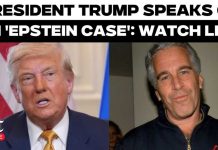
Health Secretary Robert F. Kennedy Jr. just fired all 17 members of the CDC’s vaccine advisory committee, calling it a “rubber stamp” riddled with conflicts of interest that threaten public health and undermine confidence in the vaccination system.
Key Takeaways
- HHS Secretary Robert F. Kennedy Jr. has removed all 17 members of the CDC’s Advisory Committee on Immunization Practices (ACIP), citing persistent conflicts of interest.
- The committee, established in 1964, advises on vaccine recommendations for the CDC and influences which vaccines are covered by insurance.
- Kennedy claims the overhaul aims to restore public trust in vaccines and eliminate corruption in the advisory process.
- Critics, including medical associations and senators, worry the move could harm public health and lead to declining vaccination rates.
- A new committee is scheduled to meet from June 25-27 at CDC headquarters, though uncertainty remains about who will replace the fired members.
Complete Overhaul of CDC’s Vaccine Advisory Panel
In a bold and unprecedented move, Secretary of Health and Human Services Robert F. Kennedy Jr. has dismissed all 17 members of the CDC’s Advisory Committee on Immunization Practices (ACIP), citing deep-rooted conflicts of interest. The committee, established in 1964, plays a crucial role in determining which vaccines are recommended for Americans, including children, and substantially influences which vaccines private insurers and government programs will cover. Kennedy’s decision represents one of the most significant early actions of his tenure in President Trump’s administration and aligns with his long-standing skepticism toward vaccine industry practices.
Termination notices were sent to panel members immediately after Kennedy published an opinion piece outlining his concerns. The notices bluntly informed members of their immediate termination from the committee. This dramatic action comes despite Kennedy’s earlier assurances to some senators during his confirmation process that he would not make such sweeping changes to the advisory panel. The committee has been scheduled to meet with entirely new members from June 25-27 at CDC headquarters in Atlanta, leaving little time for transition or for new appointees to prepare for their responsibilities.
Restoring Public Trust or Undermining Public Health?
Kennedy has been explicit about his motivation for removing the committee members, stating that reform is necessary to restore public confidence in vaccine science and recommendations. “The committee has been plagued with persistent conflicts of interest and has become little more than a rubber stamp for any vaccine,” Kennedy declared in his announcement of the decision. He further criticized the committee for never recommending any vaccine, even those later withdrawn for safety reasons, and for failing to adequately scrutinize vaccines administered to vulnerable populations like infants and pregnant women.
“A clean sweep is necessary to reestablish public confidence in vaccine science, ACIP new members will prioritize public health and evidence-based medicine. The Committee will no longer function as a rubber stamp for industry profit-taking agendas,” Kennedy stated.
However, the decision has drawn sharp criticism from medical organizations and public health experts who worry about the implications for vaccine policy and preventable disease rates. The American Medical Association condemned the move, stating “it undermines trust and upends a transparent process that has saved countless lives.” Similarly, the Infectious Diseases Society of America has pushed back against Kennedy’s allegations of conflicts of interest, characterizing them as completely unfounded. These critics fear that Kennedy’s overhaul could lead to declining vaccination rates and an increase in preventable illnesses.
Political Fallout and Future Concerns
Several senators who supported Kennedy’s confirmation expressed surprise at the scope and timing of his action. Senator Bill Cassidy, who had received assurances from Kennedy about maintaining the committee, voiced concerns about the qualifications of potential replacements. “Of course, now the fear is that the ACIP will be filled up with people who know nothing about vaccines except suspicion. I’ve just spoken with Secretary Kennedy, and I’ll continue to talk with him to ensure this is not the case,” Senator Cassidy remarked.
The uncertainty surrounding who will replace the committee members has heightened concerns in the medical community. Kennedy’s history as a vocal vaccine skeptic has led many to speculate that he might appoint like-minded individuals who share his suspicions about vaccine safety and efficacy. If the new committee significantly alters vaccine recommendations, the consequences could be far-reaching, affecting insurance coverage, public health policies, and potentially leading to outbreaks of preventable diseases. Despite these concerns, Kennedy remains steadfast in his commitment to reform, insisting that a clean sweep is needed to re-establish public confidence in vaccine science.
“A clean sweep is needed to re-establish public confidence in vaccine science. The public must know that unbiased science–evaluated through a transparent process and insulated from conflicts of interest–guides the recommendations of our health agencies,” Kennedy explained in his announcement.













